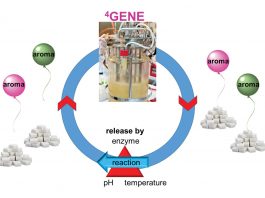The European Academy of Allergy and Clinical Immunology are fighting for the advancement in the knowledge surrounding the complexity of allergic diseases.
Allergic diseases represent one of the most prevalent chronic health challenges worldwide, incurring significant societal and economic burdens. Performance deficits, loss of productivity and absenteeism linked to allergy suffering have a major effect on macroeconomics, while direct medical costs (including hospitalisation), drain national economies of much needed resources. Of course, the number of patients suffering from impairments to their quality of life should also not be forgotten. Patients face a relentless disruption to their sleep, mood, performance at work or school and overall personal development.
These allergic diseases encompass a wide range of conditions, from respiratory or food allergies, to skin conditions such as atopic dermatitis. The so-called ‘Allergy epidemic’ currently sees 339 million people worldwide suffer from asthma and an estimated 40% suffering from Allergic Rhinitis. Between 15%‐20% of children are currently affected by atopic dermatitis; with the incidence rates increasing by two to three-fold during the past decades in industrialised countries. With a current estimate of allergic disease prevalence worldwide increasing in the next decade, allergies constitute a public health concern that requires immediate and concerted action.
The main challenge of allergy research in the 21st century is to advance in the knowledge of the complexity of allergic diseases, and to improve the prognosis, diagnosis and treatment. This will make the transition to a precision medicine allergic patient: predictive, preventive, personalised and effective.
Meet the EAACI
The European Academy of Allergy and Clinical Immunology (EAACI) is a leading non-profit organisation, and Europe’s largest medical association in the field of allergy, asthma and clinical immunology. EAACI’s global membership constitutes nearly 12,000 members from 124 countries, and works with over 70 National Allergy Societies, acting as a primary source of expertise in the field. Since its establishment in 1956 in Florence, the mission of EAACI has been to provide the most efficient platform for scientific communication and education, ultimately striving to ease the suffering of patients who have these diseases. The main aims of EAACI are to promote research in allergy, asthma and clinical immunology, through collecting, assessing and disseminating scientific information. These aims are achieved through the society’s function as a scientific reference body for other scientific, patients and political organisations, encouraging and providing training and continuous education, while most importantly promoting excellence in patient care.
All EAACI stakeholders are key companions actively involved in all EAACI platforms, from development and implementation of the EAACI scientific and educational output to joint advocacy efforts. Working together with national and international societies, patients’ organisations, regulatory bodies and industry representatives is crucial for promoting good clinical practice, high standards of education and outstanding research within Europe and worldwide. Our partners’ perspective is fundamental for adapting and integrating the Academy’s output into the context of real‐world problems. At the 1st European Forum on allergic diseases and asthma organised by EAACI in November 2019 World Health Organization (WHO), Paul Ehrlich Institute, The European Union of Medical Specialists (Union Européenne des Médecins Spécialistes), the European Federation of Allergy and Airways Diseases Patients’ Associations, the French National Institute of Health and Medical Research, European Respiratory Society, European Paediatric Association, European Society for Immunodeficiencies, the Global Alliance against Chronic Respiratory Diseases and National Allergy Societies representatives provided their valuable input in building the European road-map to allergy and asthma healthcare.
Addressing unmet needs
Allergy, asthma and clinical immunology research has many challenges, including complex European regulations, limited funding opportunities, data gathering and overall quality control. To address these unmet needs, the newly formed EAACI Research and Outreach Committee (EAACI ROC) will develop an innovative research and knowledge exchange network supporting research and development. The EAACI ROC will aim to support allergy, asthma and clinical immunology research through the co-ordination and support of the academic research community. Furthermore, the EAACI ROC aims to deliver new forms of translation of key research findings, to better meet the needs of clinicians and more quickly develop precision approaches. These will facilitate the development of EAACI Guidelines to improve and cure allergic disease and asthma.
Moreover, the current priorities of EAACI are to promote translational research and implementation science, drug development and biomedical engineering, big data and information technology (including mobile health). EAACI holds annual conferences across Europe attracting world leaders in the field to present the latest state-of-the-art research and to discuss future directions in allergy research. The EAACI 2020 conference is due to be held in London from the 6th to the 10th of June with the theme ‘Bridging innovations into allergy and asthma prevention’. In an ever-changing world with rapidly advancing technology, it is important that these are rapidly utilised in medicine to drive the future directions of allergy research. Omics, Big Data, mHealth and the development of Artificial Intelligence (AI) are all playing an increasingly large role in research, and this congress seeks to provide a unique opportunity to foster and discuss these avenues.
In addition to discussion, the congress also provides career development opportunities, outreach and perspectives from both clinical and non-clinical research. On the first day of the Congress, 6th June, interactive patient engagement and outreach activities are planned. This interactive event will aim to provide allergy patients and members of the public with world-class medical expertise and materials via the EAACI Congress platform. This is the ideal opportunity to delve into a hands-on allergy experience, testing out novel diagnostic and treatment techniques, and explore current advances in the field allergy. By building a common platform for both the public and Congress attendees who will discover the modern world of allergy and gain knowledge on prevention, we are shifting the paradigm of current allergy and asthma research to bridge innovation.
EAACI research priorities
As a key driver of the direction of allergy research in Europe and the wider, EAACI has outlined key research priorities that should be addressed:
- Translational research and implementation science;
- Drug development and biomedical engineering;
- Big Data and information technology (including mobile health); world
- Allergic diseases and asthma in the context of environmental health; and
- The developmental exposome.
Several effective strategies to implement evidence‐based practices such as planning, education, financing, restructuring, quality management and attention to policy context were highlighted during the Strategic Forum. This approach can support the adaptation of the precision medicine approach in a wide range of healthcare systems facilitating patients’ access to new drugs or other interventions based on precise endo-typing that poses at present significant problems on the sustainability of the healthcare system.
European Academy of Allergy and Clinical Immunology
https://www.eaaci.org/
Co-Authors
Mohamed Shamji
Reader in Immunology and Allergy
Chair of the Research and Outreach Network
Allergy & Clinical Immunology Inflammation, Repair and Development
National Heart & Lung Institute Imperial College London
Tomàs Chivato, MD, PhD
EAACI Vice President of Science
Dean and Professor of Allergology
School of Medicine
University CEU San Pablo (Madrid)
Ioana Agache
EAACI Past President
Faculty of Medicine
Transylvania University
Brasov, Romania
Please note, this article will also appear in the first edition of our new quarterly publication.









